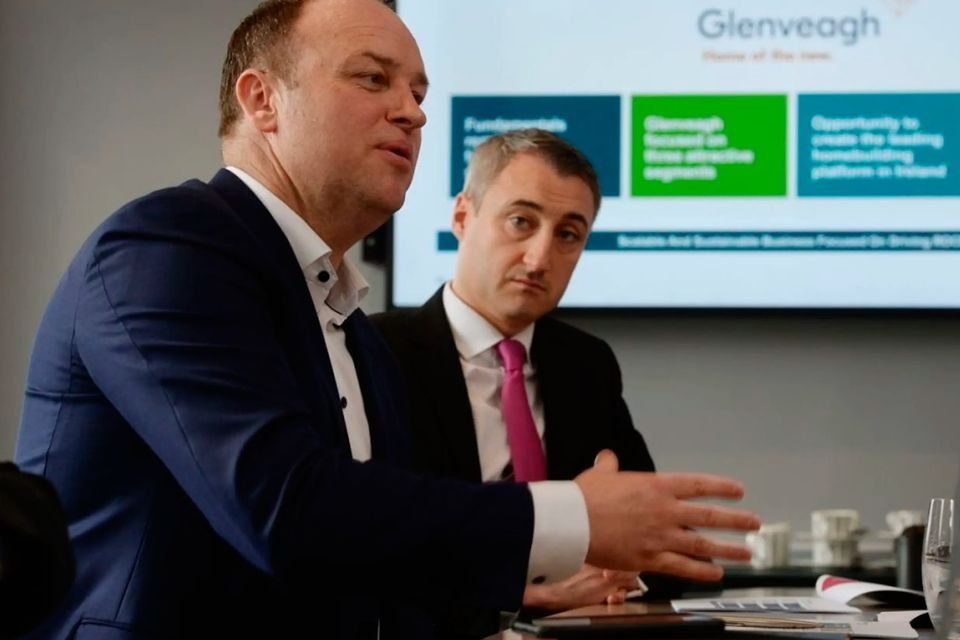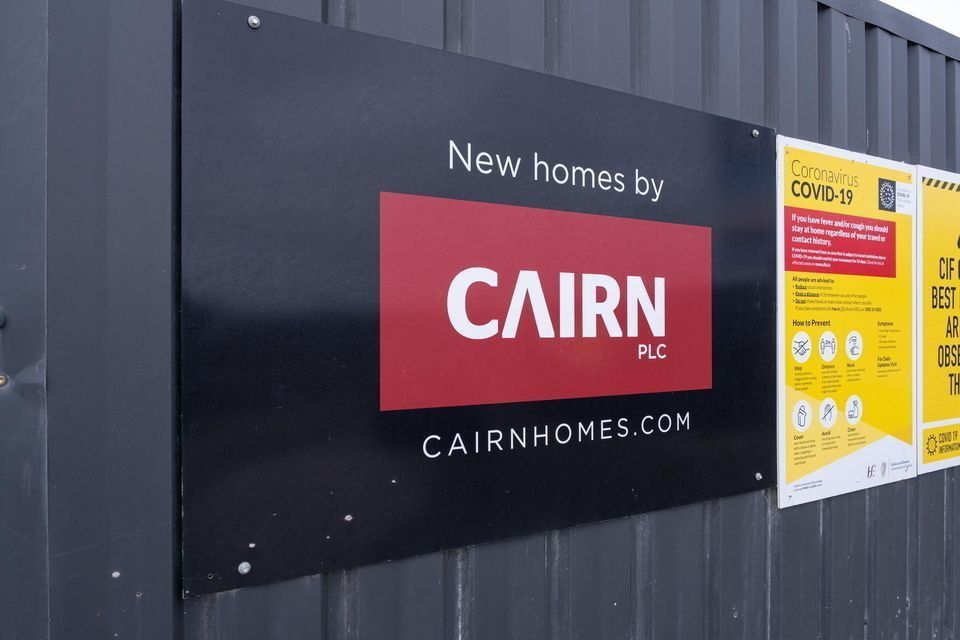Big-name developers top list of funding recipients in state-backed home build loan scheme designed for smaller players

Sources in the private-lending sector say HBFI’s focus on major players is skewing the market and putting international lenders off funding the Irish residential market
Major developers, including DRes, Marlet, Cairn Homes, Glenveagh and Joe O’Reilly’s Castlethorn have received backing through subsidiaries.
And firms linked to the Roche family – one of the most successful families in Irish business through its involvement in NTR and the Doyle Hotel Group – also received state-backed loans for house building.
But numerous sources in private-sector development funding firms say that HBFI’s focus on big players is skewing the market and discouraging international lenders from funding the Irish residential sector.
Scheme was introduced by Paschal Donohoe (pictured) five years ago with a remit to back small developers in areas where the private sector was unwilling to lend
Ian Lawlor of development funder Round Tower Capital said he was aware of a UK lender who in the last six months looked at setting up an alternative lender to target the €2m to €10m segment of the market.
“But they decided against it because they couldn’t compete with HBFI,” he said.
“We welcome multiple sources of funding but finance from state-backed lenders should complement and act as a backstop rather than as [it] is currently structured, competing directly with private lenders.”
HBFI has approved more than €2bn of loans to developers since it was set up by Paschal Donohoe five years ago with a remit to back small developers in areas where the private sector was unwilling to lend.
Glenveagh boss Stephen Garvey and chief financial officer Michael Rice. Photo: Glenveagh
But the agency has increasingly focused on bigger firms that private-equity firms were likely to lend to anyway, numerous sources said.
A third of housing units backed by HBFI – about 4,000 – are in the Greater Dublin area. By contrast, loans were approved to fund the building of just 550 homes across the whole of Connacht and Ulster.
Firms linked to Sean Reilly, one of the so-called Maple 10 of developers (a group of investors given loans by Anglo Irish Bank in 2008 to buy shares in the bank), were among those to receive backing.
Bisgoal Ltd, whose director, Denis O’Flynn is the brother of Cork developer Michael O’Flynn, also received backing, as did Kimpton Vale, led by Sean Keegan, the son of Castleknock developer Laurence Keegan.
The Sammon family, whose construction group found itself in difficulty in the wake of the collapse of outsourcing giant Carillion, are also involved in a firm to get a HBFI loan.
Cairn Homes is on the list
Barina Construction, a significant residential developer in Dublin which was previously placed in receivership by Nama, was also backed.
Another loan recipient, Clerking Property, is linked to well-known developer Cannon Kirk, which exited ‘bad bank’ Nama following a €100m investment by US private equity giant Oaktree.
Other major construction firms to get funding include Gem Construction, Drogheda-based Manley Construction, Lagan Homes, Poolbeg Properties and Hollybrook Homes – the developer of the so-called “Millionaires Row” estate in Malahide.
Housing development firms linked to partners in major financial services firms also received backing, while a number of well-known names from the GAA world also feature among the developers who have received HBFI backing.
Former Fianna Fáil TD and Wexford hurling manager Tony Dempsey is a director of Balcon Developments, which received backing. Former Cork hurling manager Kieran Kingston’s Elking Investment Holdings also borrowed from HBFI.
To the end of June 2024, HBFI has provided funding of €2.1bn to housebuilders small, medium and large
A HBFI spokesman said it identifies and addresses emerging capital gaps across the housing market.
“Over the last number of years, the funding landscape has changed considerably, meaning new gaps have emerged.
“In response to these capital gaps, HBFI has evolved its product offering considerably to ensure all commercially viable schemes from five units upwards get funded,” said the spokesman, adding that HBFI offers loans from €1m to over €100m.
“HBFI operates strictly on commercial terms, and to the end of June 2024, has provided funding of €2.1bn to housebuilders (small, medium and large) to support the delivery of 11,200 homes.”
But numerous players in the development lending sector said that HBFI’s approach was different to what it had been set up to do and would ultimately lead to less funding in the sector.
A number of sources claimed that HBFI was offering developers taxpayer-funded deals that were more competitive and that gave a better return to developers.
“That is killing off the private equity competition and so now there’s a reluctance for new entrants to come into the market.
HBFI’s approach was ‘different to what it had been set up to do and would ultimately lead to less funding in the sector’
“HBFI are asking for less money upfront from developers and giving them preferential rates to do deals that someone else, a private funder, was willing to do anyway,” claimed one industry source.
Private-equity funders had issued terms on many of the deals that HBFI ultimately won, he said.
“These are competitive offers where developers were getting a sufficient return of 10pc minimum or maybe 15pc but HBFI are offering more.
“Private equity wants to transact but the Government is just undercutting private equity and taking the risk on to the State for deals and giving more money to developers.”






